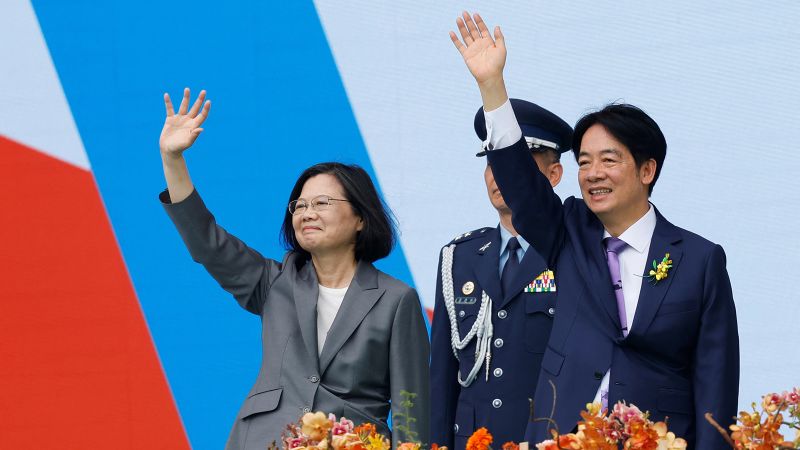Taiwan inaugurated a new president, Lai Ching-te, on May 20, 2024. Lai is the third consecutive presidential term for the Democratic Progressive Party (DPP) in Taiwan. He took office amidst tensions with China and pledged to continue Tsai Ing-wen's foreign and defense policies.
Lai was sworn in at a ceremony attended by thousands of people in front of the Presidential Office Building in Taipei. The event featured military helicopters flying overhead, artistic performances, and congratulations from politicians and diplomats from Taiwan's allies such as the United States, Japan, South Korea, and various European states.
Lai has vowed to maintain stability with China while beefing up Taiwan's security through imports of advanced fighters and other technology from close partner the U.S., expanding the defense industry with the manufacture of submarines and aircraft, and reinforcing regional partnerships with Taiwan's unofficial allies.
The United States, which does not formally recognize Taiwan as a country but is bound by its own laws to provide the island with means to defend itself, congratulated Lai on his inauguration. U.S. Secretary of State Antony J. Blinken expressed hope for deepening unofficial relations and maintaining peace and stability across the Taiwan Strait.
Lai, 64, takes over from Tsai Ing-wen who led Taiwan through eight years of economic and social development despite the COVID-19 pandemic and China's escalating military threats. He is seen as inheriting her progressive policies including universal health care, backing for higher education, and support for minority groups including same-sex marriages.
Lai has previously described himself as a 'pragmatic worker for Taiwan's independence,' drawing Beijing's rebuke. However, he has since softened his stance and now supports maintaining the status quo across the Taiwan Strait and the possibility of talks with Beijing.
Beijing claims Taiwan as its own territory and has been upping its threats to annex it by force if necessary. China's ruling Communist Party regards reunification with Taiwan as 'a historical inevitability.'
During Tsai's tenure, Taiwan became the first society in Asia to legalize same-sex marriage, though critics say she skirted political responsibility by leaving the decision up to the Supreme Court and a series of referendums. She oversaw a controversial pension and labor reform and extended military conscription length to one year. She also kickstarted a military modernization drive, including a program for building indigenous submarines at over $16 billion each.
Tsai's leadership during the pandemic split public opinion, with most admiring Taiwan's initial ability to keep the virus largely outside its borders but criticizing the lack of investment in rapid testing as the pandemic progressed.


